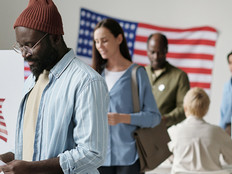Does Electronic Voting Increase the Accuracy of Election Results?
About 10 years from now when electronic voting is the norm, we may look back on the days of paper ballots and wonder how democracy ever survived such inefficiency, similar to wondering what people used to do before e-mail came around.
While convenience and waste reduction are two benefits of going paperless, another is that electronic votes can be more accurately tabulated.
Paper ballots are susceptible to human error. For example, ballots can get stuck together, resulting in votes that are miscounted. Or ballots can be printed incorrectly, resulting in a delay in the voting process.
The desire to avoid human-error mishaps has led New York City’s Board of Elections to opt for electronic voting, according to a story from the New York Post.
Memory sticks will be removed from the machines and delivered to local police precincts for transmission to the central board, a several-step process that is still cumbersome and time-consuming.
But John Naudus, the board’s director of electronic voting systems, said accuracy and not speed is the goal of the experiment.
“This process is basically trying to eliminate all those places of human error,” he said.
Paper and pencil will still be used as backups, but if everything with the new program runs smoothly, they won’t be needed.
The paperless trend is certainly poised for more growth. According to Verified Voting, a nonpartisan organization that studies voting systems, 25 percent of voters will use paperless electronic voting machines this November during the presidential election.
Ten years from now, it won’t be surprising for that number to be closer to 95 percent.
Of course, electronic voting isn’t immune to mishaps and errors, and electronic data comes with its own set of problems. Machines are susceptible to data corruption or system failures, which is why states and local authorities need to develop backup plans.
"What you need is a system where if something goes wrong you have a way to recover," said Pam Smith, president of Verified Voting, in an article with Discovery News. "You want to be able to reconstruct what should have been the outcome without a do-over."
But still, just as we’ve come to rely on our notebooks and desktop computers over pencil and paper for many tasks, there’s no reason why voting can’t make the same leap toward improved accuracy and reliablity as it shifts into the digital age.







